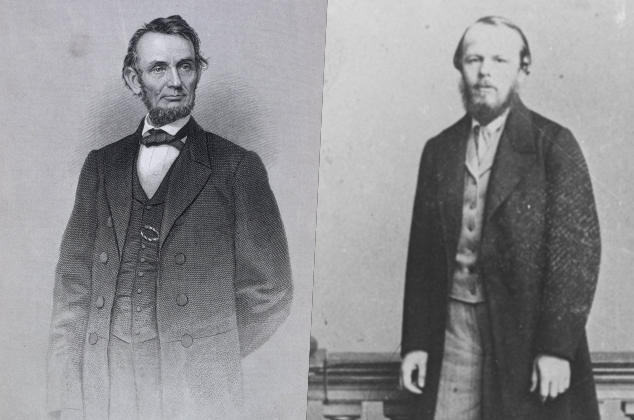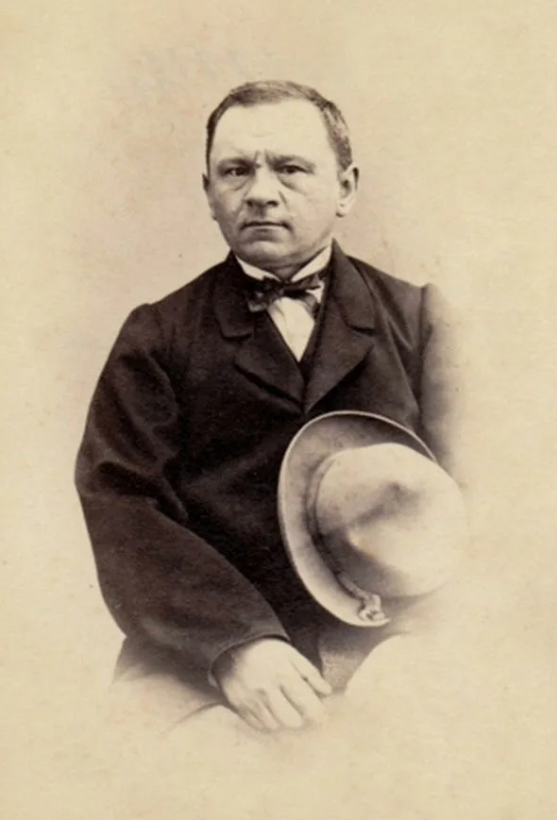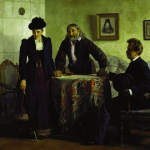
11.01.2023
I, my children and our old Russian friends perfectly remember how, in the evening, playing with the children, Fyodor Mikhailovich, to the sounds of the organ, danced with the children and with me a quadrille, waltz and mazurka.
Alexander Egorovich Rizenkampf
Of the various St. Petersburg pleasures, the theater attracted him most of all. It can be said that in 1841 and 1842, all theaters in St. Petersburg, without exception, flourished. As for the ballet, I have almost never been to it myself, but Fyodor Mikhailovich always spoke with admiration about the impression that the dancers Taglioni, Shlefakht, Smirnova, Andreyanova and the dancer Johanson made on him. The Alexandrinsky Theater flourished mainly at that time. Such artists as the Karatygins, Bryansky, Martynov, Grigorievs, Ms. Asenkova, Dyur, etc., made an incredible impression, especially on the passionate, poetic nature of Fyodor Mikhailovich. On the French stage, we equally admired such talents as the Allans, Vernet and his sister, m-me Paul Ernest, Mondidier, Bressant (who was later replaced by the equally gifted Deschamps), Tetard, Dumenil, m-me Louisa Mayer, mlle Mila, Malvina, etc. At that time, two people were given out at the German theater: Mr. Kunst and Mrs. Lilla Levet. The impression made by the last actress on Fyodor Mikhailovich in the role of Mary Stuart was so strong that he decided to develop this plot for the Russian stage, but not in the form of a translation or imitation of Schiller, but independently and in accordance with the data of history. In 1841 and 1842, this was one of his main tasks, and every now and then he read us excerpts from his tragedy “Mary Stuart”.
The second place among the Petersburg pleasures was occupied by music. In 1841, the audience admired the concerts of the famous violinist Ole-Bul. On April 9, 1842, the concerts of the genius Liszt began and continued until the end of May. Despite the hitherto unheard-of price of tickets (first 25 rubles, then 20 rubles in banknotes), Fyodor Mikhailovich and I did not miss almost a single concert. Fyodor Mikhailovich often laughed at his friends who wore gloves, hats, hairstyle, canes a la Liszt. After one of the concerts, in the cramped exit from the hall, he had a brush torn off from his sword strap, and from then until his retirement he went without this brush, which, of course, was noticed by many, but Fyodor Mikhailovich indifferently answered all the comments that this strap without a brush was dear to him, as memory of Liszt’s concerts. However, Fyodor Mikhailovich never treated music with the same enthusiasm as his older brother.… In addition to these pleasures, young people also found entertainment at parties in private homes. But Fyodor Mikhailovich had few acquaintances and generally shunned them, feeling himself out of his sphere in family homes. There were balls and masquerades in the Noble Assembly — in the united society, in the German assembly. Finally, for the so-called jeunesse doree[3] there were also dancing classes with spitsbals: Martsinkevich, Bure, Madame Kestenig, Reichardt, etc., and in the summer country festivities. It is clear that Fyodor Mikhailovich, with his passionate nature, with his thirst to see everything, to find out everything, threw himself indiscriminately into those and other entertainments; but most likely he refused balls, masquerades, etc., since he was generally quite indifferent to the female sex and its lures. Only his exorbitant expenses were incomprehensible to me, despite his comparative moderation in pleasures…
Stepan Dmitrievich Yanovsky

Fyodor Mikhailovich, sincerely loving society, also loved some of its pleasures and amusements. So, for example…. he loved music, as a result of which, whenever possible, he attended the Italian opera, and at times, when the Maykovs had dances on Sundays, he not only liked to watch the dancers, but also willingly danced himself. Of the operas, he gave special preference to “William Tell”, in which the trio with Tamberlik delighted him, listened with pleasure to Mozart’s “Don Juan”, in which he liked the role of Zerlina the most, and admired “Norma”, first with Julia Borz and, and then with Grisi; when in When Meyerbeer’s opera The Huguenots was staged in St. Petersburg, Fyodor Mikhailovich was positively delighted with it. Salvi disliked the singer Frezzolini and the tenor, saying that the first was a doll with a good voice, and the second seemed to him very mawkish and soulless. Fyodor Mikhailovich loved dancing as an expression of spiritual contentment and as a sure sign of health, but he never mixed with them either the question of getting closer to a woman thanks to the opportunity to exchange a living word with her while dancing, or the question of the grace and dexterity of the dancers.
Anna Grigoryevna Dostoevskaya
I, my children and our old Russian friends perfectly remember how, in the evening, playing with the children, Fyodor Mikhailovich, to the sounds of the organ, danced with the children and with me a quadrille, waltz and mazurka. My husband was especially fond of the mazurka and, to be fair, danced it smartly, with enthusiasm, like an “inveterate Pole”, and he was very pleased when I once expressed my opinion.
Sofya Vasilyevna Kovalevskaya
Fyodor Mikhailovich was not a musician. He was one of those people for whom the enjoyment of music depends on purely subjective reasons, on the mood of the moment. Sometimes the most beautiful, artistically performed music will only cause them to yawn; at other times, a hurdy-gurdy, screeching in the yard, will move them to tears…
He once told us that of all the musical works, he loves Beethoven’s la sonate pathetique the most and that this sonata always immerses him in a whole world of forgotten sensations.
Nikolai Von-Focht
F. M. Dostoevsky was very fond of music, he almost always hummed something to himself, and this best indicated a good mood of his spirit. In this respect, the second daughter of A. P. Ivanov, Maria Alexandrovna, a student of the Moscow Conservatory, gave him great pleasure with her beautiful playing. In one thing only they differed: Maria Alexandrovna was a big fan of Chopin (like all women in general), while Fyodor Mikhailovich did not particularly favor the music of the Polish composer, calling it “consumptive”. He put the music of Mozart and Beethoven above all else, and of the Russian composers he was very fond of the works of Glinka and Serov, especially the opera of the latter “Roshed”.
Andrey Mikhailovich Dostoevsky (1825-1897), younger brother of the writer

I will also mention here about the brother’s parties that happened three or four times, to which several officers (brother’s comrades) gathered, with the aim of playing cards; I do not know how it was later, but during the first time of his officer’s career, my brother was very fond of playing cards, and preference or whist were only the beginning of the game, but the evening he constantly ended up gambling in the bank or stoss.
E. A. Mamontova (nee. Melchakova), Semipalatinsk philistine
I remember one circumstance well, but somehow I’m afraid I don’t dare to pass it on to you… It’s a very incredible fact at first glance… No matter how they reproach me for lying. Dostoevsky at one time seemed to be addicted to gambling. We played a lot here then. One day Fyodor Mikhailovich went to his uncle in the morning and told him that yesterday he had seen an unprecedented game. This game made a strong impression on him: he, talking about it, walked quickly around the room and finished with excitement:
— Wow, how they played… it’s hot! It’s too bad that there is no money… Such a damn game is a pool… I see and realize with her the abomination of this monstrous passion… but it pulls and sucks!
Anna Grigoryevna Dostoevskaya
Speaking of cards: in the society (mainly literary) where Fyodor Mikhailovich moved, there was no habit of playing cards. During our entire 14-year life together, my husband played preference with my relatives only once, and despite the fact that he had not picked up cards for more than 10 years, he played excellently and even beat his partners by a few rubles, which was very embarrassing.




